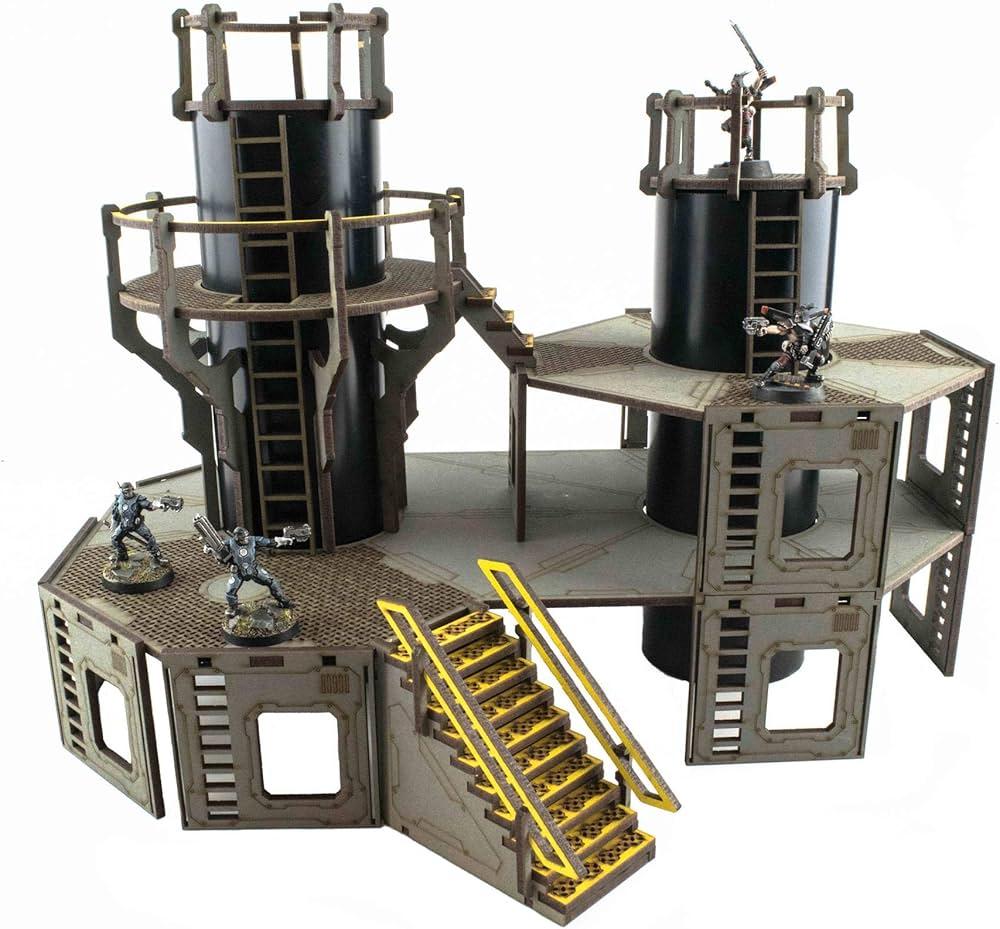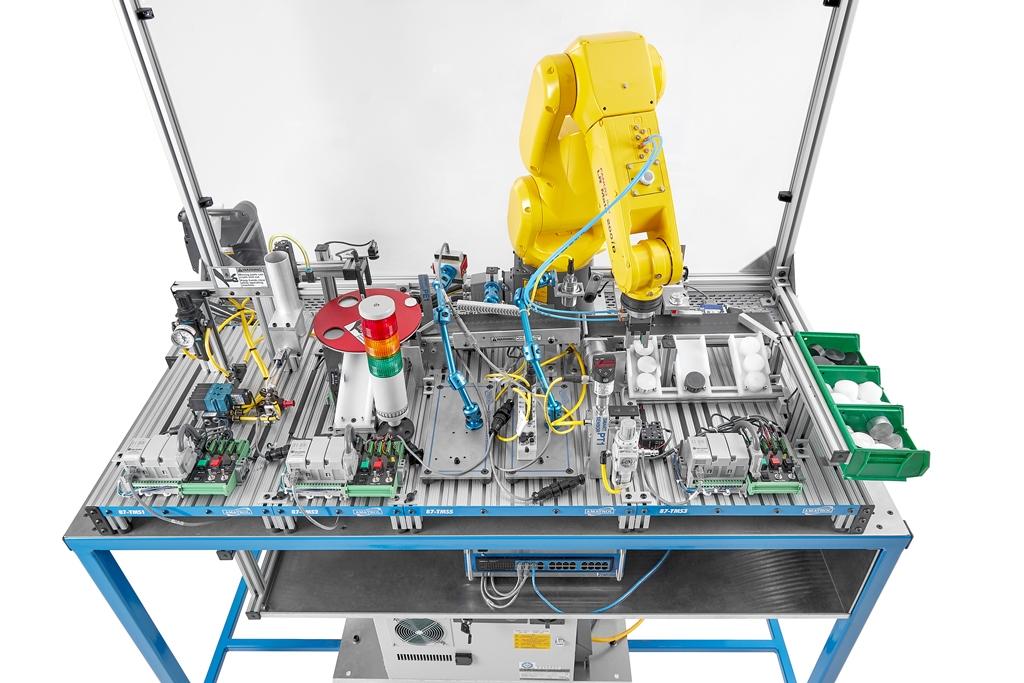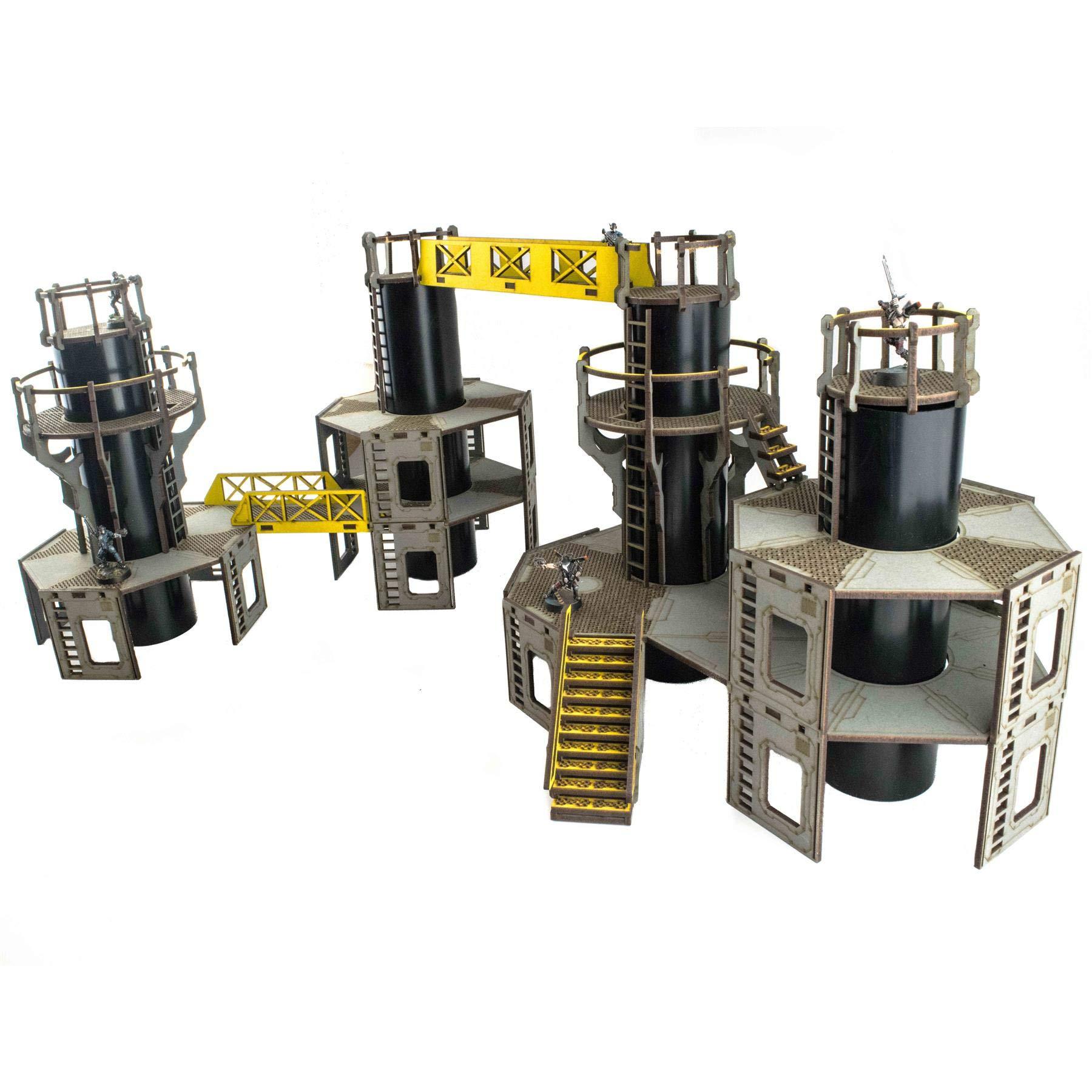Impact of tariffs on Pricing and Consumer Behavior in the Tabletop Sector
The impending tariffs threaten to escalate prices across the tabletop industry, leading to a ripple effect that could fundamentally alter consumer purchasing behavior. As manufacturers grapple with increased production costs due to tariffs on imported materials, many are projected to pass these expenses onto retailers. This scenario could result in a significant price hike for popular gaming titles, miniatures, and accessories. Consumers may respond to these changes in several ways:
- Delaying purchases as they wait for potential discounts or price reductions.
- Shifting focus to self-reliant and local games that may evade tariffs.
- Prioritizing essential purchases over discretionary spending in the hobby sector.
Furthermore, the disruption poses a serious risk to consumer loyalty to brands that fail to maintain competitive pricing. As prices tighten, enthusiasts may turn towards alternative entertainment options, diminishing the customer base that has fueled decades of growth within the tabletop market. The anxiety surrounding potential price increases is palpable, and the industry must navigate these uncharted waters quickly, or risk alienating a generation of devoted players willing to support only the most value-driven products. Indicators of changing behavior include:
- Increased interest in second-hand markets and crowdfunding campaigns for indie projects.
- Formation of buy-local movements encouraging communities to support homegrown creators.
- A shift towards digital or virtual games as a financially savvy alternative.

Strategies for Manufacturers to Mitigate Financial Losses Amidst Trade Uncertainty
as manufacturers within the tabletop industry grapple with the fallout from impending tariffs, implementing strategic measures is crucial to curbing potential financial losses.One of the first steps companies can take is to diversify their supply chain. By sourcing materials and components from multiple regions, manufacturers can reduce their reliance on any single country, thereby minimizing the risk of disruptions or increased costs resulting from tariff actions. Additionally, exploring alternative markets can open opportunities in regions less affected by trade disputes.
Moreover, manufacturers should consider investing in technology and automation to enhance operational efficiency. By streamlining production processes and reducing waste, companies can mitigate the impacts of increased costs linked to tariffs. Another effective strategy includes building strong relationships with customers,as transparency about price adjustments and maintaining open lines of dialogue can foster loyalty and retain business during challenging times. Lastly, proactive engagement with industry associations can provide manufacturers with valuable insights and advocacy, helping to ensure their voices are heard in ongoing trade discussions.

The Role of Innovation in Sustaining Growth During Economic Challenges
The tabletop industry, traditionally a beacon of stability and growth, now finds itself grappling with unprecedented challenges as new tariffs threaten to unravel hard-won progress. Manufacturers and retailers are facing a critical juncture, with many businesses reporting significant declines in consumer confidence.As prices on imported materials escalate, companies are compelled to reassess their strategies, pivoting towards innovation as a lifeline.The current climate demands that industry players not only adapt but also embrace cutting-edge solutions, transforming obstacles into opportunities for differentiation.
Emphasizing creativity in product growth and operational processes has never been more essential. Industry leaders are exploring various avenues to stay afloat, including:
- Investing in sustainable materials: Shifting towards eco-kind alternatives can not only reduce costs in the long run but also appeal to environmentally conscious consumers.
- Leveraging technology: Implementing automation and AI tools can enhance efficiency, reduce labor costs, and streamline supply chains disrupted by tariffs.
- Expanding local manufacturing: While initially more expensive, moving production closer to home could mitigate the impact of tariffs and build a more resilient operational model.
As the landscape evolves, the firms that prioritize innovation today can emerge with a competitive edge, driving growth even in the face of adversity. The ability to pivot, innovate, and rethink traditional business models could very well determine the survival of many in this turbulent era.

Community Responses and Industry Solidarity: Navigating the Fallout Together
The recent proclamation of impending tariffs on imported goods has sent shockwaves through the tabletop gaming community, prompting a wave of responses from both consumers and industry leaders. Gamers, publishers, and retailers alike have taken to social media and discussion forums to express their concerns and solidarity in navigating the uncertain terrain ahead. Many are organizing grassroots campaigns to support local creators and small businesses, emphasizing the importance of community resilience in times of crisis. Key responses include:
- Petitions for tariff review: Many players are urging policymakers to reconsider the proposed tariffs, arguing that they could significantly hinder access to affordable games.
- Swap meets and events: Local gaming groups are hosting events aimed at fostering community support and exchanging resources without falling prey to tariff impacts.
- Social media campaigns: Influencers and content creators are using their platforms to raise awareness about the potential repercussions, encouraging collective action among consumers.
Simultaneously occurring,the industry’s response is equally impactful,as major publishers are exploring alternative strategies to mitigate the fallout. Some are leaning towards local production to counterbalance potential cost increases from tariffs, while others are initiating collaboration with designers worldwide to diversify product sourcing. The challenge of maintaining product affordability amidst rising costs is prompting industry leaders to reconsider their business models and forge new partnerships. Current strategies include:
- Collaboration with local artists: By championing regional talent, companies can foster a sense of community while reducing shipping costs.
- obvious communication: Many publishers are reaching out to consumers to explain the situation and outline their plans for navigating upcoming challenges.
- Innovative crowdfunding projects: Some companies are utilizing crowdfunding platforms to gauge interest and secure funding upfront, allowing for more calculated investment in production.
